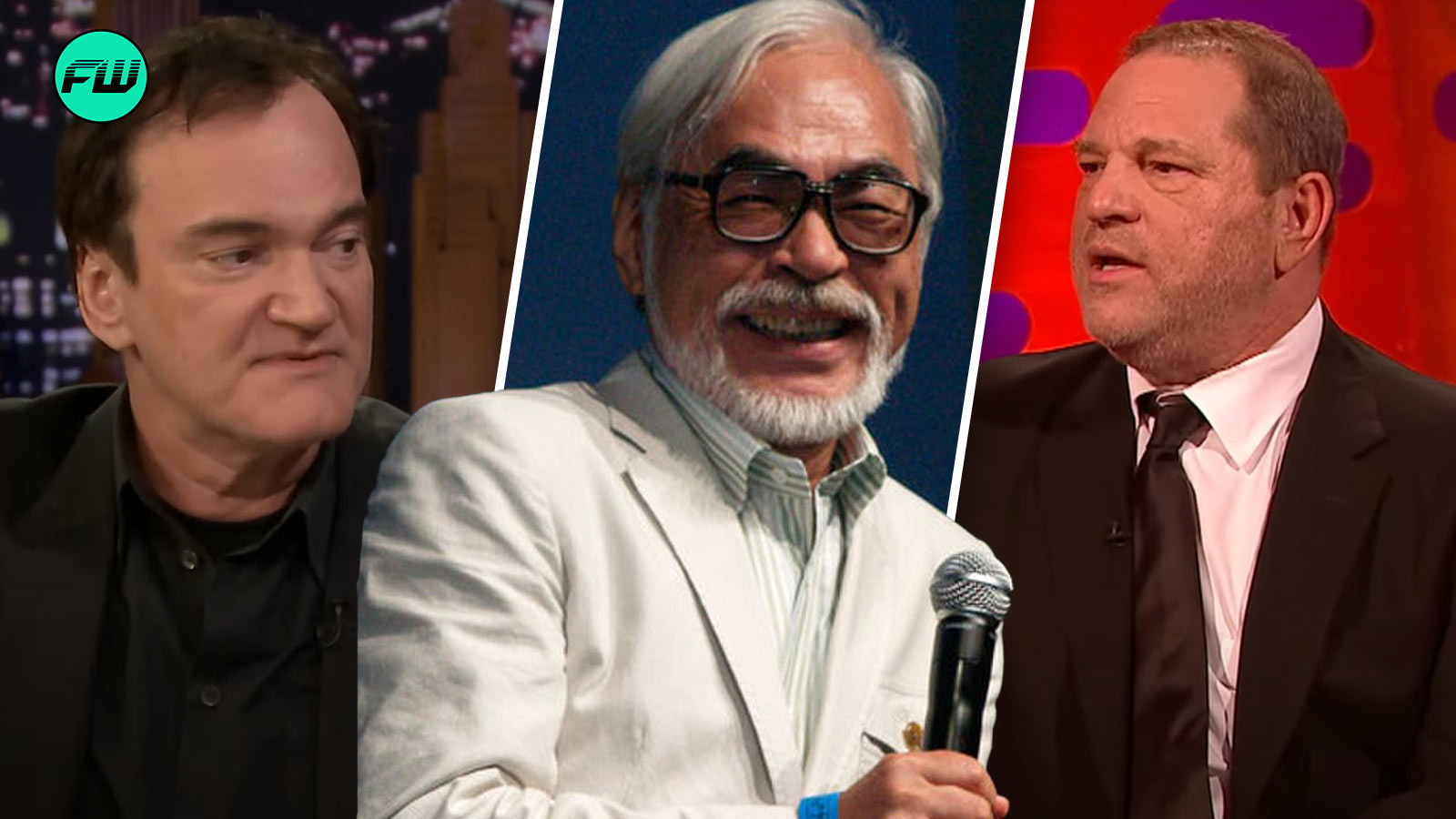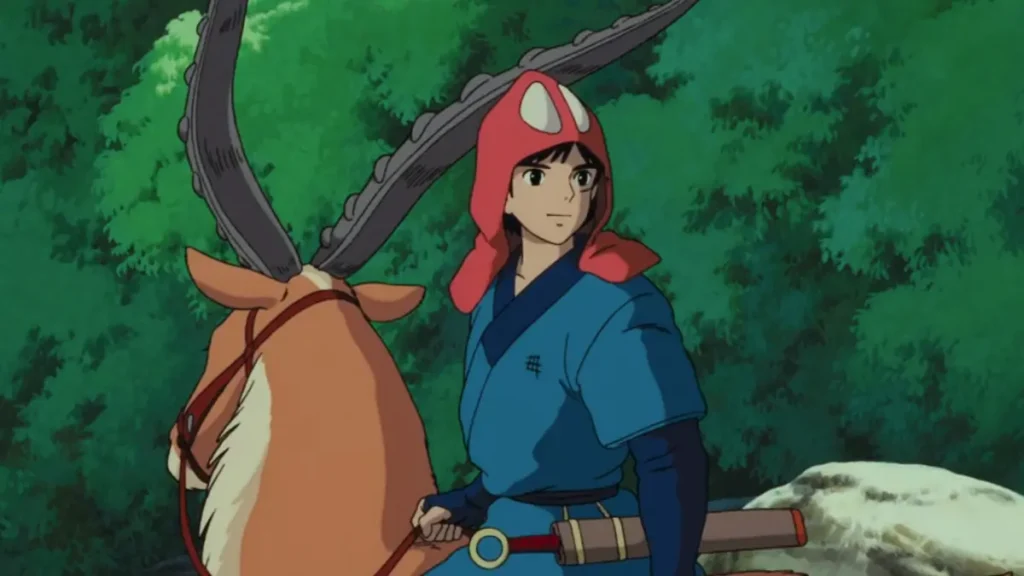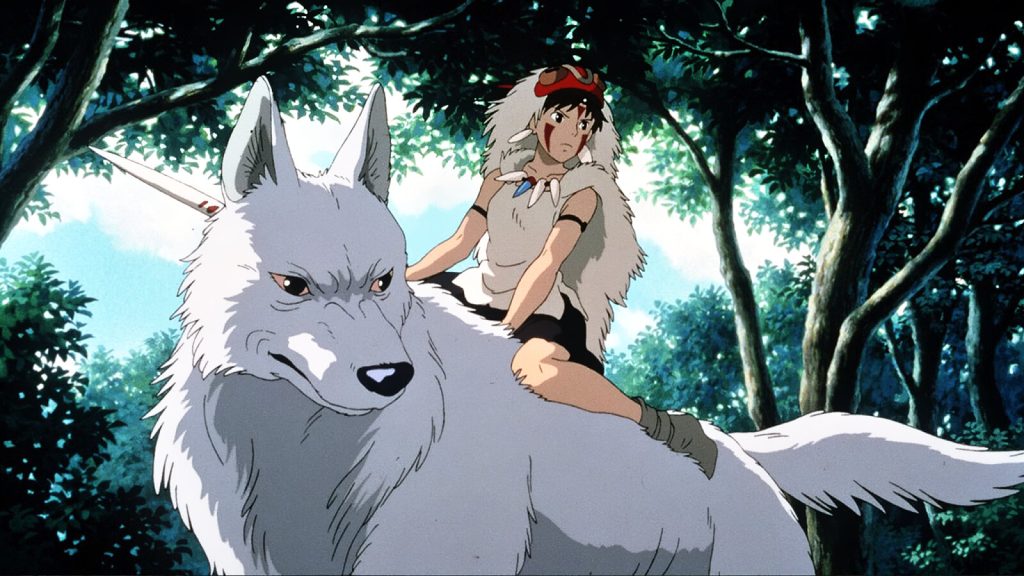
Princess Mononoke is considered to be a landmark film in Hayao Miyazaki’s filmography. It was the most expensive animated film at the time, using CGI and other digital techniques alongside hand-drawn animation. It also had one of the biggest marketing campaigns in Japan at the time. At the box office, the film broke several records to become the highest-grossing Japanese film.
Miyazaki’s themes explored in the film were also revolutionary, as it presented a feminist portrayal of characters. American studios were impressed with the performance of this Studio Ghibli film, and Disney secured the rights to distribute it.
Disney’s Miramax label was tasked with dubbing it into English and releasing it. Harvey Weinstein initially approached Quentin Tarantino to write the English screenplay, but he turned down the offer.
Quentin Tarantino turned down writing Miramax’s version of Princess Mononoke

Once Disney handed over Princess Mononoke to Harvey Weinstein at Miramax Films, he immediately approached Quentin Tarantino to write the screenplay (via The Independent). Tarantino was known for his dark films, featuring graphic violence. Hayao Miyazaki‘s animated film would’ve suited the writer-director, given some of its dark themes and graphic depictions.
At that point, Quentin Tarantino had worked with Weinstein and Miramax on films like Reservoir Dogs, Pulp Fiction, and From Dusk till Dawn. Despite this relationship, Tarantino turned down the offer from Weinstein. However, he made the suggestion that Weinstein approach Neil Gaiman for the job.
The Sandman author also seemed a great fit for the project, as his graphic novels felt closer to the works of Studio Ghibli. While Tarantino’s suggestion ended up working for the film, even Gaiman had to admit that he had a pretty tough task at hand.
He told The Baltimore Sun that he faced a major issue with the “flap count”. Flap count makes sure that the English dub matches the movements of the characters’ mouths on the screen. He shared, “I’ve said, and not entirely in jest, that I probably spent as much time translating the two songs in ‘Mononoke’ as I did on the entire third draft of the script.”
Steve Alpert, Studio Ghibli’s head of international division, shared in his memoir that Gaiman was a huge help during the discussion stage. As usual, the American studio wanted to Disneyfy the movie, claiming that the U.S. audience wouldn’t understand the film. However, Gaiman defended the script, sharing, “The audience isn’t stupid. If they were, they wouldn’t get the rest of the film either” (via Polygon).
Hayao Miyazaki humbled Harvey Weinstein during the discussion stage

Among other issues Harvey Weinstein and Disney had with the film, they also wanted to cut down the film significantly. The film was longer than Disney’s animated films. However, Hayao Miyazaki was already unhappy with the way the English version butchered his earlier film, Nausicaä of the Valley of the Wind (1984).
According to a popular lore in the industry, Studio Ghibli sent a katana sword to Miramax’s office, with the words “No cuts” inscribed on it. The action from the studio worked, and an uncut version of the film was released in the U.S. When Miyazaki was asked about threatening Weinstein during an interview with The Guardian, he had a few things to clarify.
Miyazaki shared that it was Toshio Suzuki, the co-founder and former president of his studio, who sent the sword. However, he shared that he did confront Weinstein about the cuts. He told The Guardian:
Actually, my producer [Toshio Suzuki] did that. Although I did go to New York to meet this man, this Harvey Weinstein, and I was bombarded with this aggressive attack, all these demands for cuts.
Miyazaki claimed in the interview with a sly smile, “I defeated him.” While it did not perform that well in the U.S. theaters, the film received a solid reception on home media (via Time). It also established Ghibli’s popularity and influence outside of Japan. The film grossed $194.3 million at the box office (via Anime News Network).
Princess Mononoke is now available for streaming on Max.
This post belongs to FandomWire and first appeared on FandomWire
